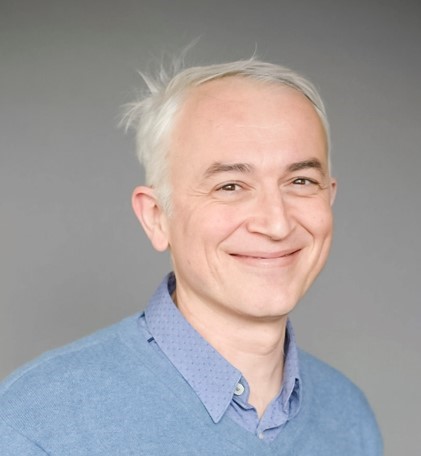- This event has passed.
The Quantum Age: From Bell Pairs to Quantum Computers
December 8, 2022 @ 4:00 pm - 5:00 pm
Nobel Physics Colloquium 12.8 @4pm
Every year, the Physics Department celebrates the Nobel Prize in Physics by inviting a renowned expert in the field of the awardees to introduce the ideas and advances that lead to their nomination. This year, we are fortunate to host Prof. Vladan Vuletić, from MIT, and expert in quantum optics and emergent quantum technologies such as quantum computers.
 Speaker: Prof. Vladan Vuletić, MIT
Speaker: Prof. Vladan Vuletić, MIT
Title: The Quantum Age: From Bell Pairs to Quantum Computers
Abstract: Quantum mechanics has not one but two mysteries: the double-slit experiment and quantum correlations (entanglement) between two or more particles. Criticized by Einstein as “spooky action at a distance”, entanglement is now seen as an essential part of the physical world, in part thanks to the recipients of the 2022 Nobel Prize. The Bell inequalities, introduced in 1964 to experimentally distinguish local hidden variable theories from quantum physics, have been confirmed to agree with quantum mechanics in the Nobel-Prize winning and many other experiments.
Building on entangled Bell pairs, the last few years have seen a remarkable development in our ability to control many neutral atoms individually, and induce controlled interactions between them on demand. This progress ushers in a new era where one can create highly entangled states of many particles, break certain limits for quantum sensors, or study quantum phase transitions. I will present results on quantum sensing enhanced by entanglement, and on quantum simulation with atomic arrays containing more than 250 atoms. Finally, I will discuss prospects for near- and medium-term neutral-atom quantum computers with full quantum error correction.
Bio: Professor V. Vuletić earned the Physics Diploma with highest honors from the Ludwig-Maximilians-Universität München, and in 1997, a Ph.D. in Physics (summa cum laude) from the same institution. While a postdoctoral researcher with the Max-Planck Institute for Quantum Optics in Garching, Germany, Professor Vuletić accepted a Lynen Fellowship at Stanford University in 1997. In 2000, he was appointed an Assistant Professor in the Department of Physics at Stanford and in June 2003 accepted an Assistant Professorship in Physics at MIT. He was promoted to Associate Professor in July 2004. He was promoted to Full Professor in July 2011.
Research Interests include laser cooling and trapping, quantum physics, quantum entanglement, quantum optics, quantum information processing. The idea of the research of the Vuletić group is to develop new methods to manipulate many-body states in a regime where the quantum mechanical aspects dominate their behavior and their properties. On the one hand, this should lead to new tools that allow one to probe physical laws and to measure fundamental constants with increasing precision. On the other hand, the progress of experimental methods also drives the advances in our understanding of the ever mysterious, beautiful, accurate, yet deeply dissatisfying structure of quantum mechanics. This interplay between theoretical concepts and experimental realizations promises to be very fertile in fields such as quantum control, quantum feedback and its limits, many-particle quantum systems, and many-particle entanglement (quantum computing). We use various methods, but most include laser-cooled atoms (to be able to keep atoms localized, and attain long coherence time) and laser-light interaction to manipulate the atoms, the photons, or both, at the quantum level. Using internal states of atoms in combination with laser light, which has essentially zero entropy, allows us to reduce thermal noise without having to cool the atoms to very low (sub-microkelvin) temperatures.
Prof. Vuletić was awarded by Lester Wolfe Career Development Chair in 2003, Alfred P. Sloan Research Fellowship in 2003-2004, and APS Fellowship “for pioneering advances across AMO physics, including quantum information and precision measurement with atomic ensembles, cavity QED, atomic collisions and Casimir forces for atom condensates near surfaces” in 2012. He is one of the founders of QuEra Computing, a Boston-based company developing quantum computers based on neutral Rydberg atoms.
168 Snell Engineering Center or Zoom